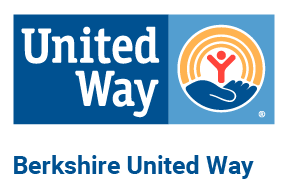As appeared in the Berkshire Eagle.
Have you ever made a promise?
Pittsfield Promise, a Berkshire United Way led coalition, was established in 2012 with the goal of increasing reading proficiency among Pittsfield third-graders to 90 percent by the year 2020.
Why 2020 you ask? That is the year most children born in 2012 — the year we began focusing our early childhood efforts on children from birth to 8 years old— will reach third grade and complete a state standardized test to assess their reading proficiency. These assessments are not a reflection of a child's, family's or even a school's, success, but rather a barometer that measures community support for our youngest learners.
While this year's MCAS has been deemed a more rigorous assessment, it is clear from the results recently released there is work to be done. This includes identifying and connecting with those families, well before their children enter the classroom, who are not currently being served.
There is a correlation between poverty and the ability to succeed. By focusing efforts on programs and services that support children from birth to 5, and connecting with the families of the 37.5 percent of Pittsfield children in that age range who are living in poverty, more of those children will arrive at kindergarten with the language and literacy skills needed to be proficient readers and succeed as they continue through school.
Sue Doucette is the program coordinator of Berkshire Compact for Education and a founding/active member of Pittsfield Promise.
"We have installed 50 Book Houses across the county, supported efforts including Wee Read and the annual School Readiness Fair, and installed four Born Learning Trails, all with the active support of local communities and businesses. We continue to solicit and support the ideas of early childhood professionals and advocate for families," Doucette said.
While the goal of Pittsfield Promise is higher reading proficiency, there are many data points that can be used to measure progress along the way. Berkshire United Way has created a strong, collaborative pathway, which includes early intervention, home-visiting services, quality early childhood education, and family engagement.
The connection between high-quality early education and care programs and ultimate educational success is well-documented. Currently only 60 percent of Pittsfield children entering kindergarten have had experience with such a program.
Through advocacy efforts from our partners locally and across the state, and with support from the Berkshire delegation, money for vouchers and an increase in salaries for early childhood education teachers was included in the fiscal 2018 state budget. Increased education, training and compensation of early childhood education teachers leads to improved learning outcomes.
"There is no question that coordinated, collaborative advocacy is moving the needle when it comes to the commonwealth's role in early education," said state Rep. Tricia Farley-Bouvier, D-Pittsfield. "My colleagues in both the Gateway City Caucus and the Progressive Caucus hear all the time about the difference Pittsfield Promise is making in our community. They bring similar stories and our collective voices, powered by local advocacy, are being heard loud and clear."
Pittsfield Promise coalition members, comprised of volunteers from business, mental health, education and preschool providers — as well as our South County early childhood coalition, Chapter One — are positioned to raise awareness in the community about this positive impact and advocate for further expansion of proven programs, including universal pre-kindergarten programs, to ensure all Berkshire County children arrive at school ready to learn.
Sixteen percent of children who are not reading proficiently by the end of third grade do not graduate from high school on time. The estimated cost to taxpayers of a Massachusetts high school dropout, over the course of his/her lifetime, is $349,000.
Some may say we cannot afford to invest in universal pre-K programs. The truth of the matter is, we can't afford not to. We promise.
